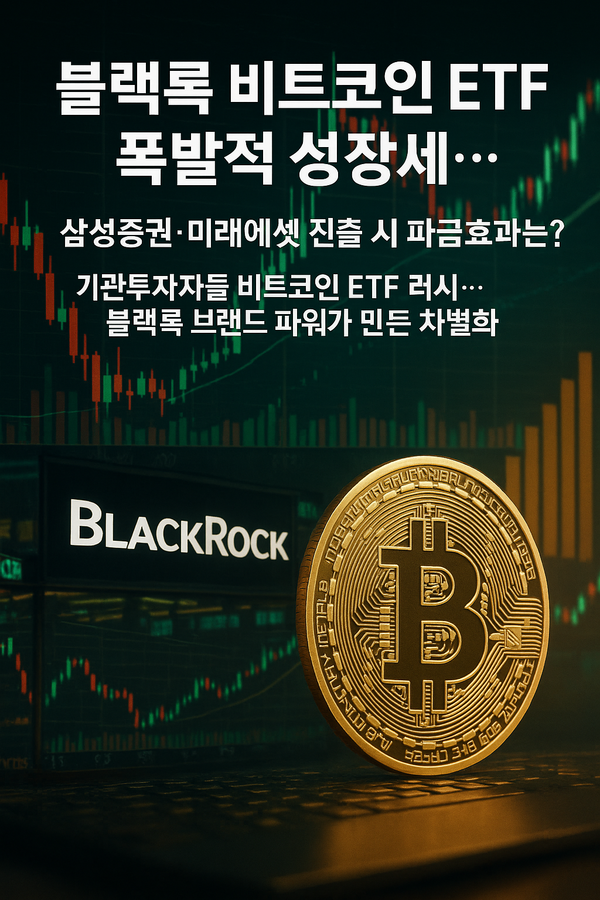
BlackRock, the world's largest asset management company, has shown a historic growth trend with its launched Bitcoin exchange-traded fund (ETF). BlackRock's 'iShares Bitcoin Trust (IBIT)' is a spot Bitcoin ETF launched last January, which allows investors to invest in Bitcoin through securities exchanges without directly holding actual Bitcoin.
IBIT has managed assets worth 70 billion dollars (approximately 98 trillion won) in 341 days since its launch, recording the highest growth rate in the 32-year history of the ETF industry. It has once again attracted market attention by recording a net inflow of 11 billion dollars last week alone.
According to a Bloomberg Intelligence report, investment advisory firms with portfolio disclosure obligations to the US Securities and Exchange Commission (SEC) hold approximately 21 billion dollars (about 29.4 trillion won), which is about 20% of the entire spot Bitcoin ETF market. This is a much higher proportion compared to hedge funds or securities firms, with approximately 1,200 institutions investing in IBIT.
Eric Balchunas, a senior ETF analyst at Bloomberg, said, "It's surprising how quickly investment advisory firms are adopting cryptocurrency ETFs" and predicted that "this ratio will double next year." He explained that "usually, it takes years for such institutions to become interested in a new ETF, and these larger investors signify liquidity."
Currently, in addition to BlackRock, there are a total of 11 spot Bitcoin ETFs listed in the US, including Fidelity and Grayscale, but BlackRock's IBIT dominates with an overwhelming first place. Rick Edelman, founder of the Digital Asset Financial Expert Council, explains this through brand power. "When institutional investors first invest in a new asset class, they choose the most well-known brand to alleviate concerns. That's BlackRock, which manages 11.6 trillion dollars."
The digital asset-friendly policies of the Trump administration also supported growth. Bitcoin is currently trading near $105,000, recording a 12% increase compared to the beginning of the year. According to a survey by digital asset management firm Bitwise, one in five investment advisory firms answered that they plan to allocate digital assets to client accounts this year.
A similar pattern is likely to emerge in the Korean situation. If domestic major securities firms like Samsung Securities or Mirae Asset Securities enter the Bitcoin ETF market in the future, they are expected to achieve success similar to BlackRock. This is because these institutional securities firms can lower the entry barriers for individual investors' digital asset investments based on their long-established brand credibility and extensive investment advisory experience.
Particularly, Korea is a country with active digital asset investment, with domestic exchanges like Upbit and Bithumb having daily average trading volumes reaching trillions of won. In this context, Bitcoin ETFs provided by institutional securities firms can be a safer and more convenient alternative compared to direct investments through existing exchanges.
The industry evaluates that the continuous growth of Bitcoin ETFs and active participation of institutional investors demonstrate that digital assets are no longer speculative investment targets but are establishing themselves as a key component of institutional assets. A financial industry official said, "The successful cases of global asset management companies' Bitcoin ETFs have significant implications for domestic securities firms."







